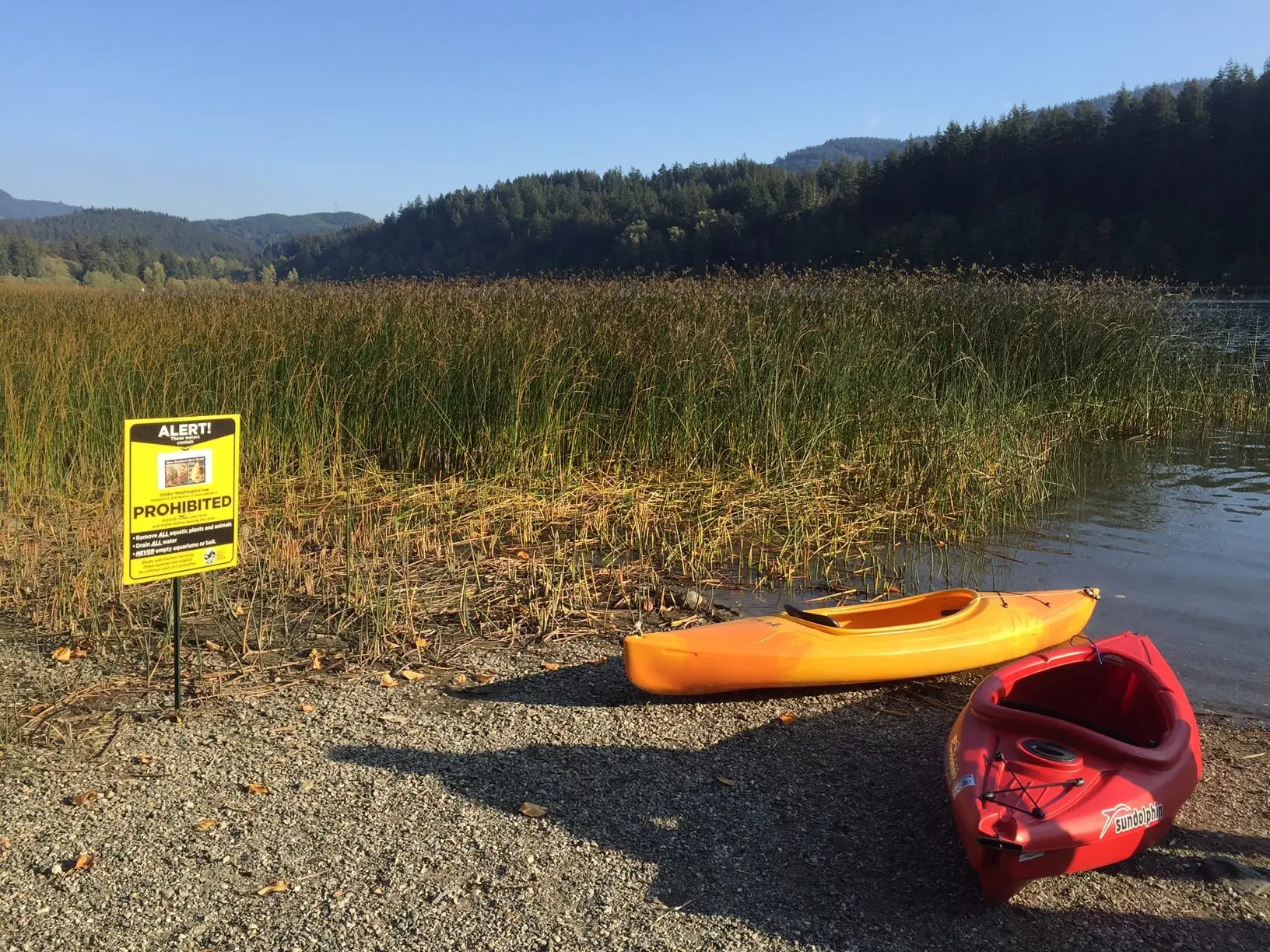The Lake Padden Triathlon is just around the corner on June 22, and Bellingham Parks and Recreation has relocated the starting line for the swimming leg of the race due to the presence of New Zealand mud snails in the Lake. Other community programs, such as the Polar Dip, will also be impacted.
New Zealand mud snails (NZMS) are tiny creatures, smaller than a grain of rice, but they can wreak havoc on water ecology and recreational activities if they aren't contained.
So far, the species seems to be contained to the shoreline areas located on the northwest side of the lake. Unfortunately, these locations are extremely popular access points for swimming, boating, and casual fishing. “In order to protect recreational use on the lake, we need help from everyone who enjoys this precious resource” says Recreation Manager Melissa Bianconi, “It would be devastating if the lake had to be closed to recreational use”.
To prevent this species from showing up in other waterways, including Lake Whatcom, all gear needs to be washed well after each use in the lake, with special attention paid to footwear. Shoes can be put in a freezer for 48 hours to kill off any snails that may have hiked home. Having a set of gear that is just used at Lake Padden is another advisable option. Dogs can also carry and spread the snails on their paws or fur. Please keep them out of the water in posted areas and wash your dog if it does go in the water.
NZMS disrupt ecosystems by rapidly multiplying and competing with native species for food and space. Since they were first discovered in Lake Padden early last fall, the City's Aquatic Invasive Species (AIS) program has taken a rapid outreach approach to educate the community regarding the presence of the invasive snail. “We plan on having staff stationed at Lake Padden again this summer to provide information to lake users about the snails and steps they can take to prevent their spread on gear, watercraft, and pets, says Teagan Ward, AIS program coordinator for the City of Bellingham. “We're also considering additional options to help people decontaminate their gear before leaving Lake Padden, such as the installation of a wash station.”
There is no known way to fully eradicate the species without causing harm to other critical species, so preventing the spread from Padden into other water ways is the best approach to managing the problem for now. In the short-term, park users should expect to see some physical barriers placed between the shoreline and the infested areas, and possibly in the water as well.

